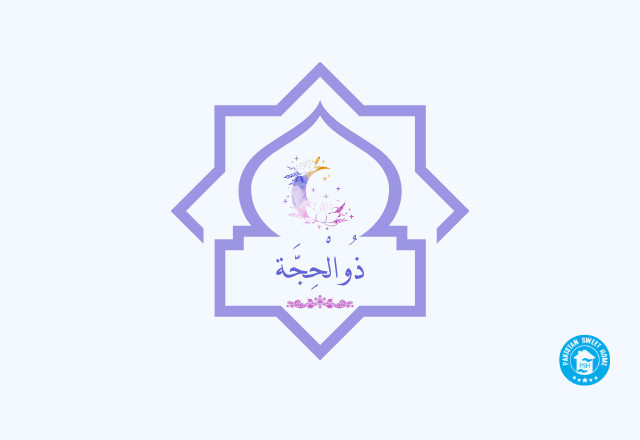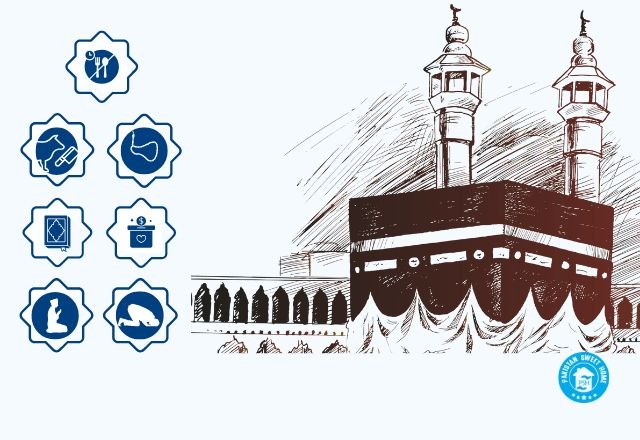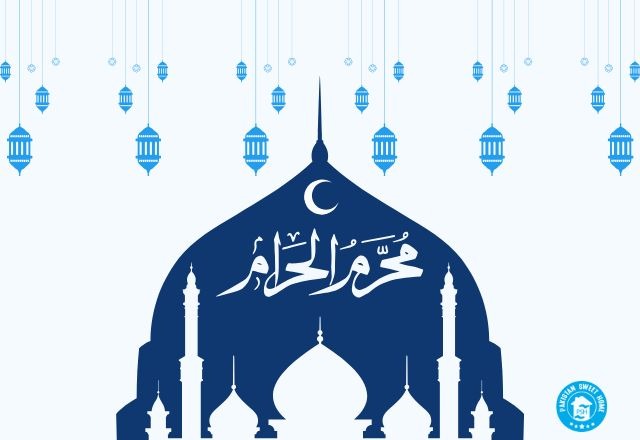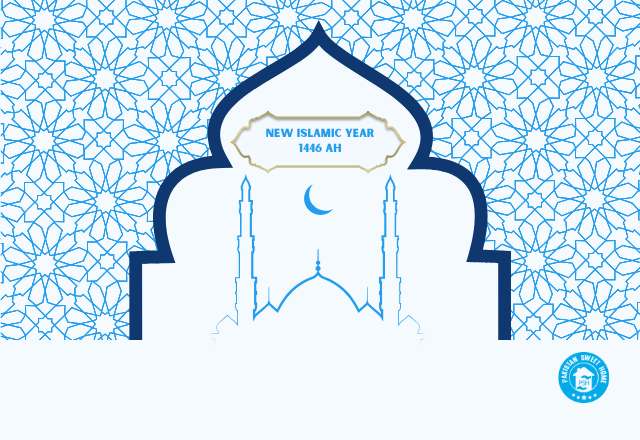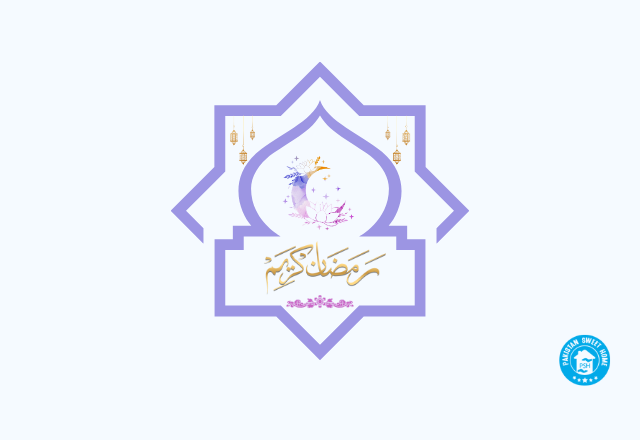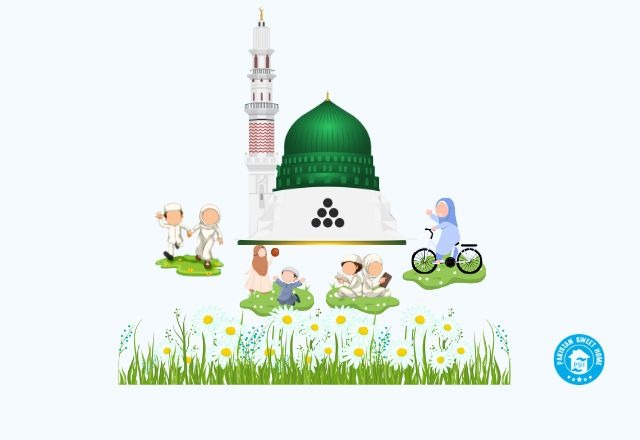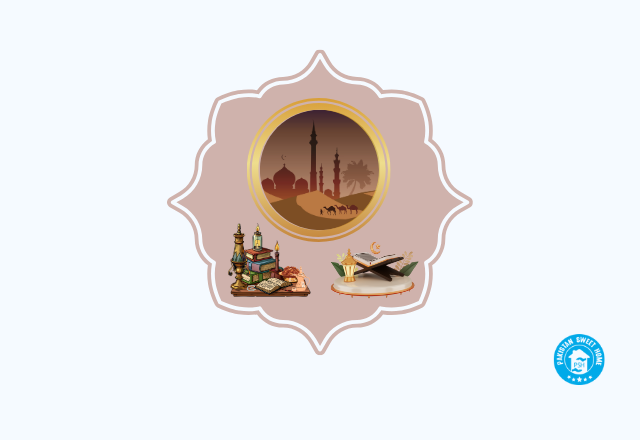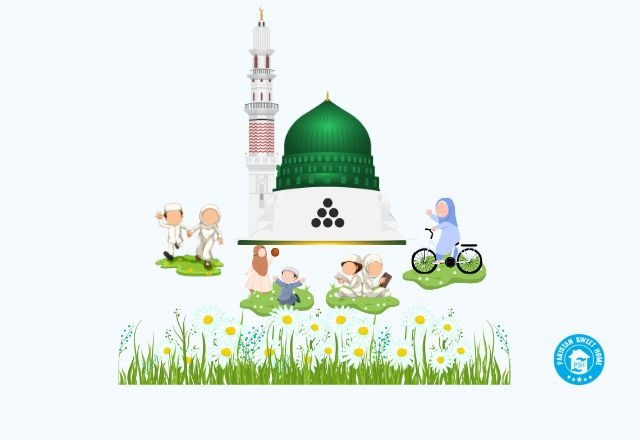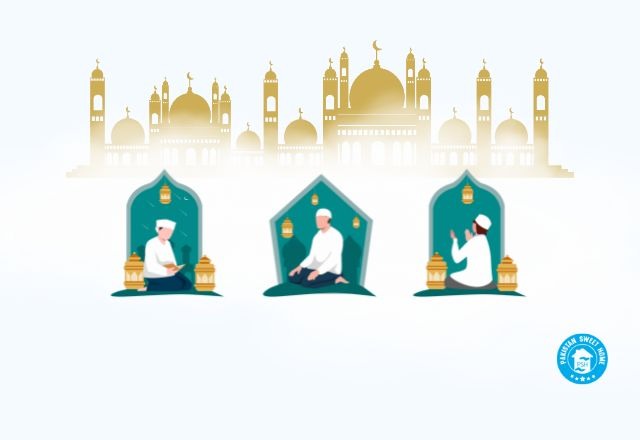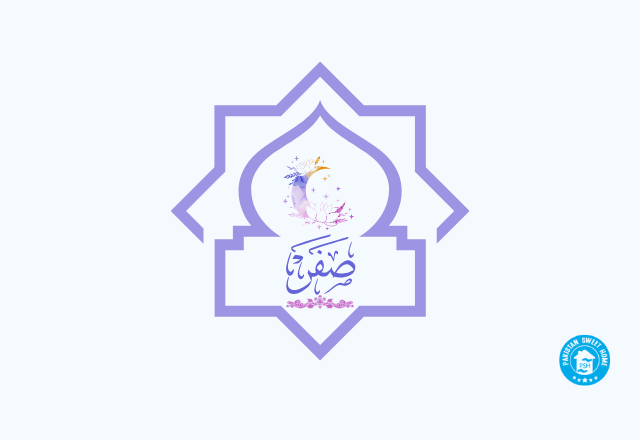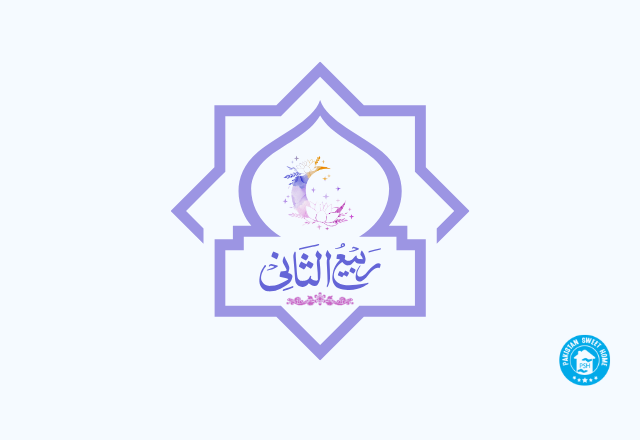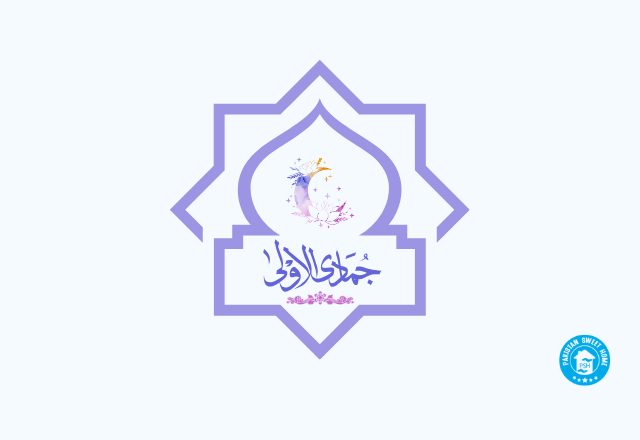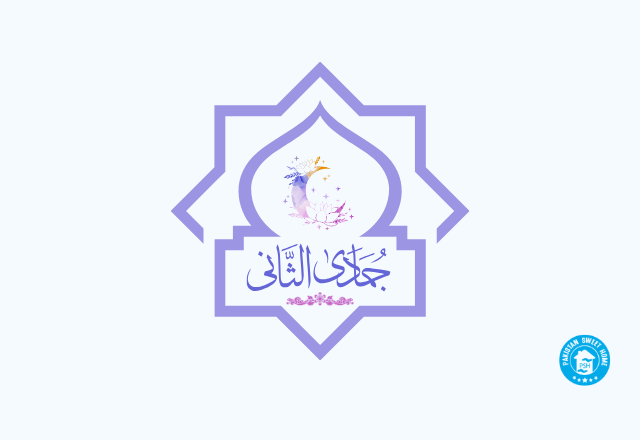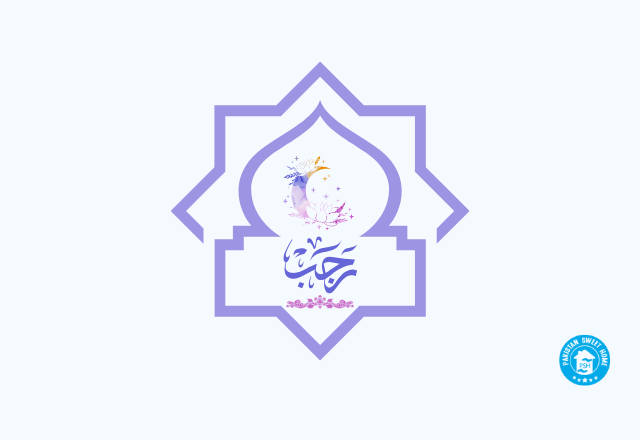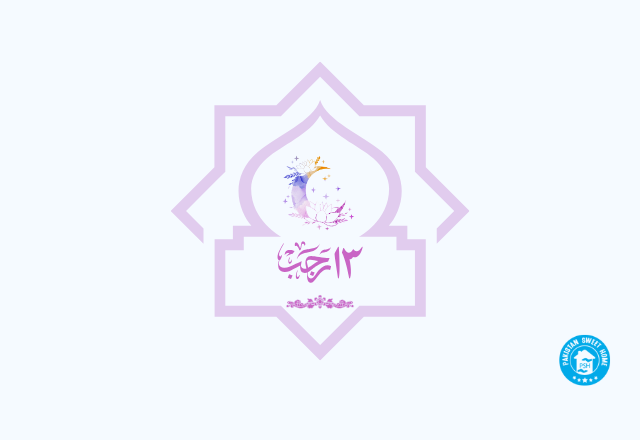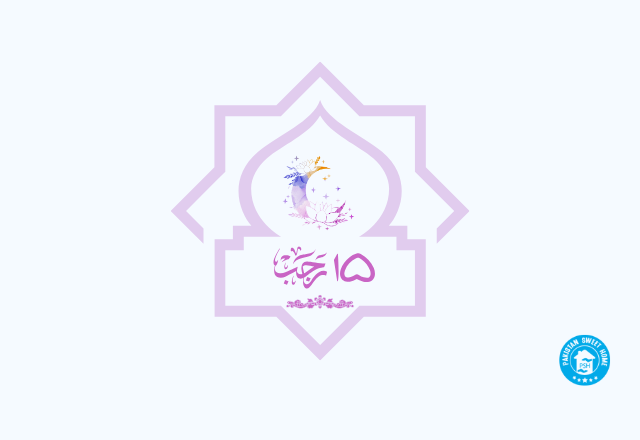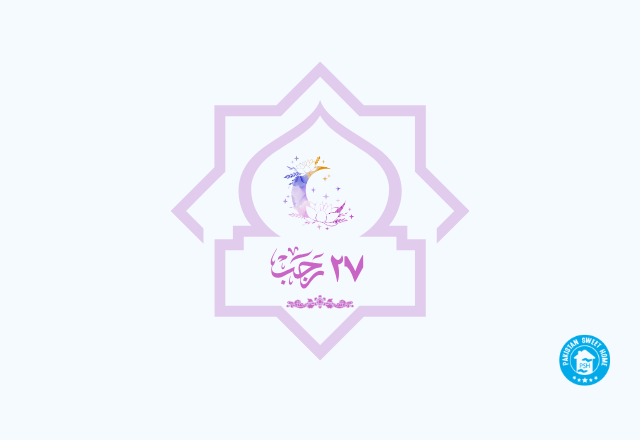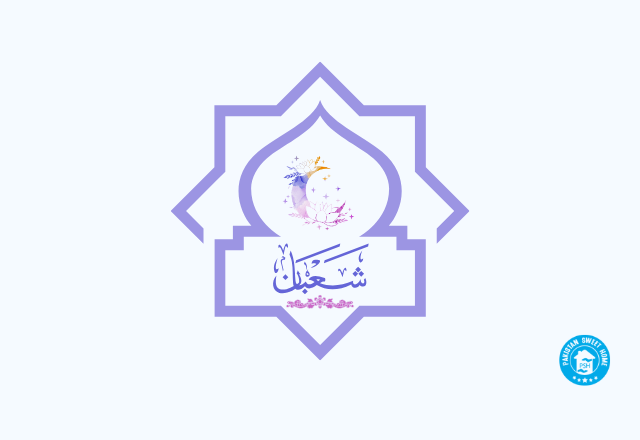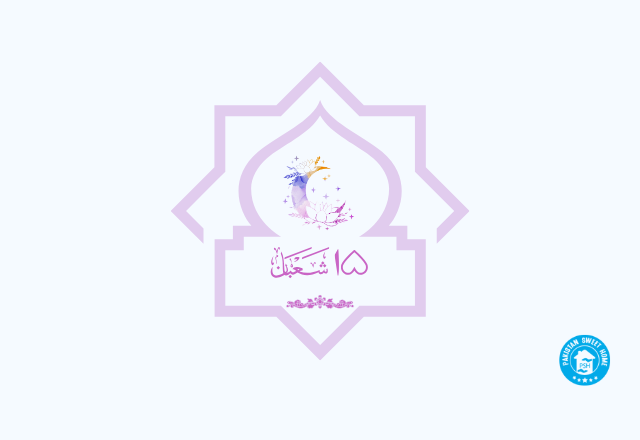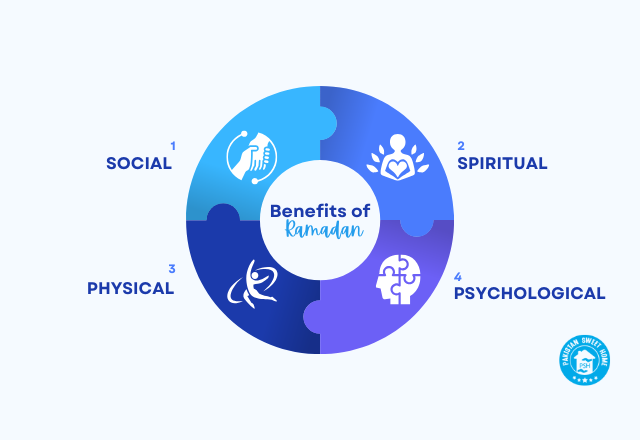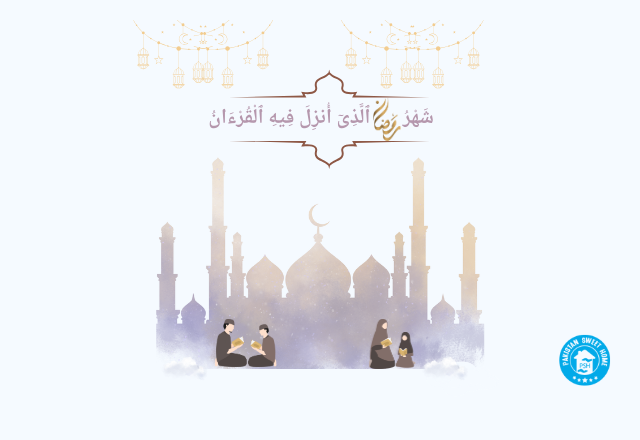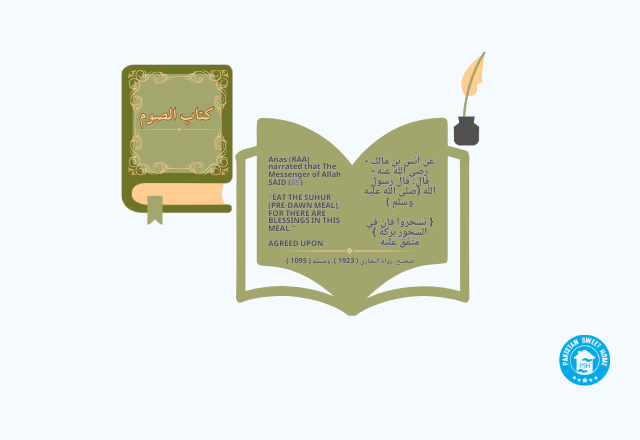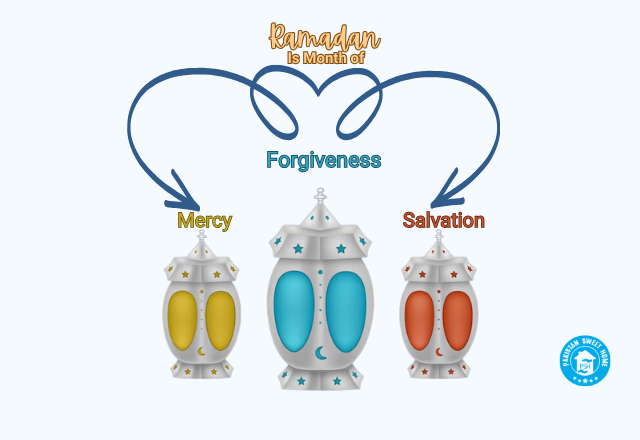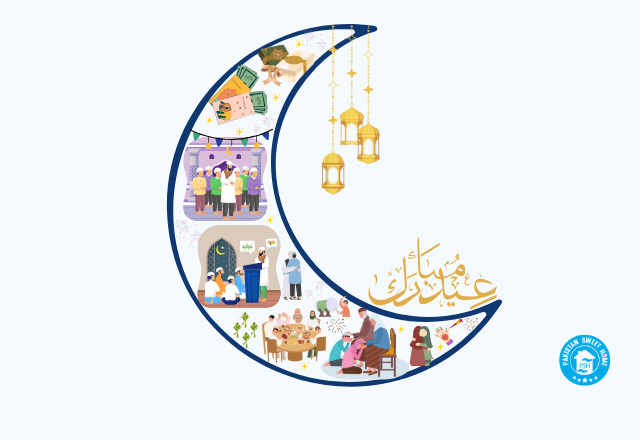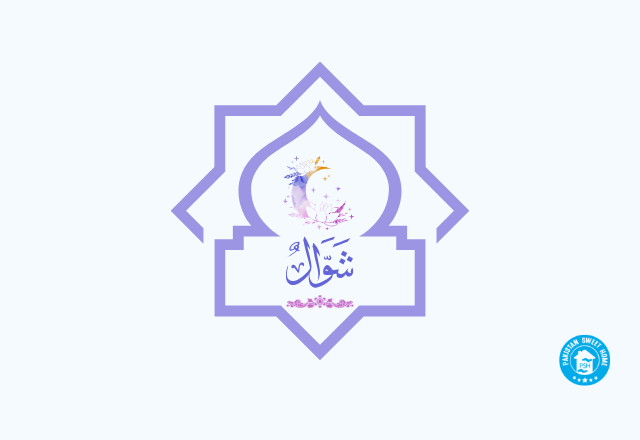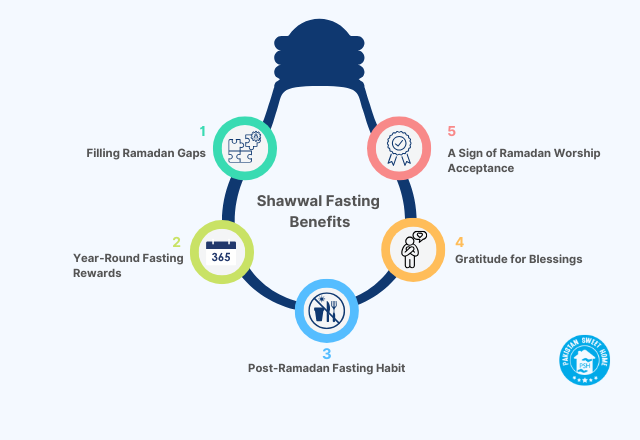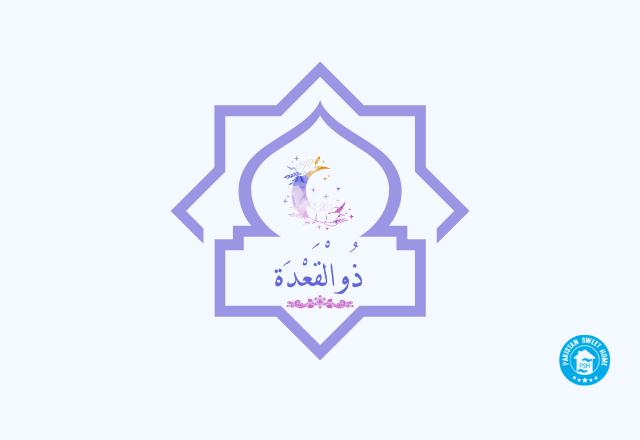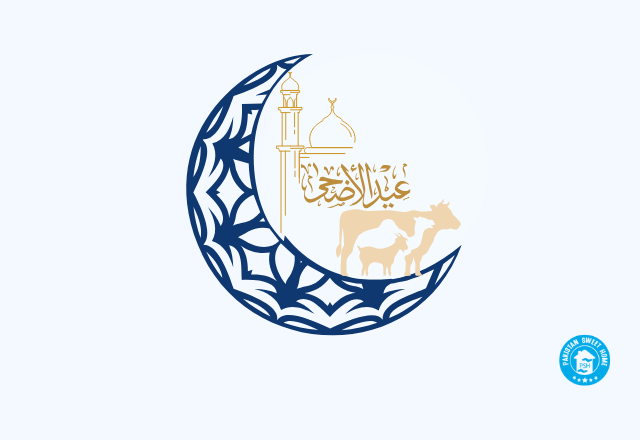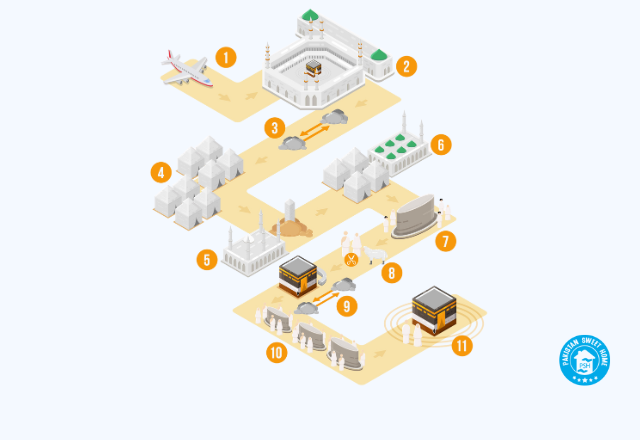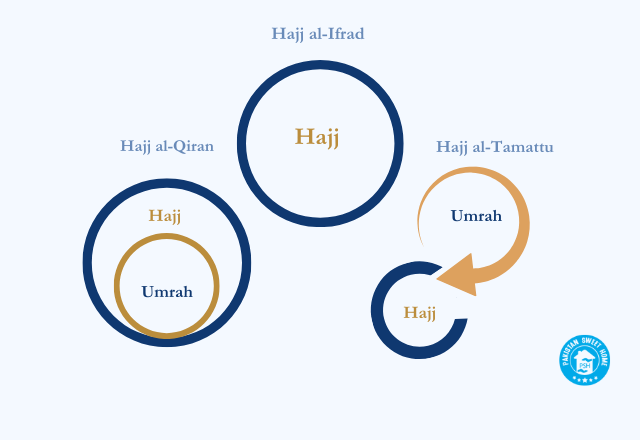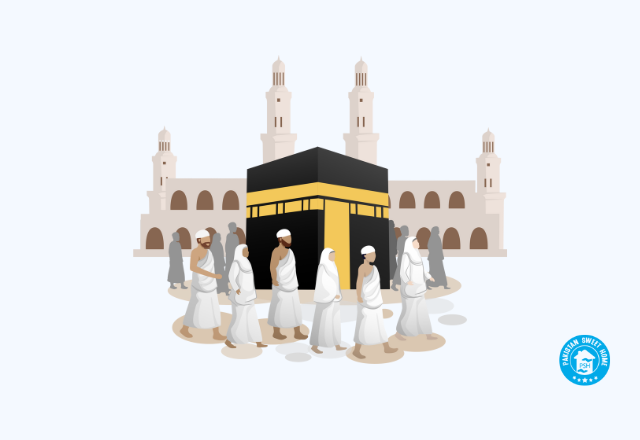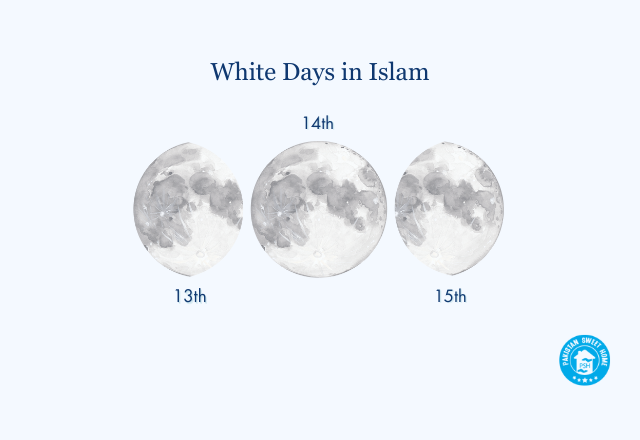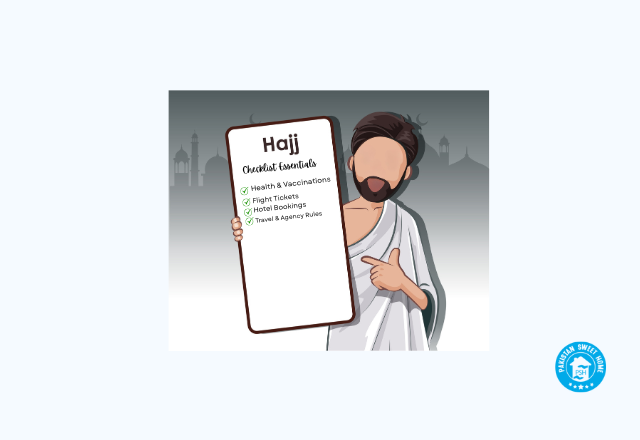The holy month of Dhul al-Hijjah (Zilhajj) marks the end of the Islamic Hijri calendar.
It is the twelfth month, specially designated by Allah (SWT) for the performance of Hajj, the fifth pillar of Islam. Hajj is a mandatory religious duty for every sane, eligible adult Muslim, provided certain conditions are met.
Each year, hundreds of thousands of Muslims travel to Makkah. They gather in nearby areas to complete the Hajj rituals on specific days in Dhul al-Hijjah.
Let’s delve into the virtues of Dhul al-Hijjah and find out when the month will begin in 2025.
Dhul al-Hijjah Meaning
In Arabic, Dhul Hijjah translates to "The Month of the Pilgrimage."
This is the time when Muslims from around the world come together in Makkah to perform Hajj, which is the fifth pillar of Islam. They embark on this sacred journey with the hope that, upon completing Hajj, their past sins will be forgiven.
When is Dhul al-Hijjah 2025?
In 2025, the 1st of Dhul Hijjah is expected to begin on May 28th. However, this date is subject to change depending on the sighting of the new moon and local lunar observations.
Significance of Dhul al-Hijjah
Dhul al-Hijjah holds special significance in Islam for several reasons:
One of the Sacred Months
Yet, Dhul Hijjah holds importance beyond being the month of pilgrimage. It is also one of the Sacred Months, Ashurul Hurum, during which Allah SWT has prohibited fighting. Dhul al-Hijjah comes after Dhul al-Qadah and before Muharram, Three of these are sacred Islamic months in Islam.
Dhul al-Hijjah holds great significance for the following key reasons:
- It is a sacred month chosen by Allah
- Dhul al-Hijjah is a month of immense sanctity, chosen by Allah for reflection, worship, and peace. During this time, warfare is prohibited, emphasizing the tranquility and holiness of the period.
- Although sin is forbidden throughout the year, its consequences are even more severe during Dhul al-Hijjah.
- To honor this blessed month, we should respect its holiness by avoiding actions that might lessen its sacred meaning.
Blessings of the First 10 Days of Dhul al-Hijjah
The first ten days of Dhul Hijjah are a time for the most revered acts of worship. It includes two of the most virtuous practices in Islam: the pilgrimage of Hajj and the first ten days of Dhul Hijjah. These days are considered the most blessed of the year.
These days hold such sacredness that Allah swore an oath by them, saying
“By the dawn, by the ten nights [the first ten nights of Dhul Hijjah]”
Surah Al-Fajr, Verses 1-2.
Our Beloved Prophet (PBUH) urged us to increase righteous deeds and acts of worship during this sacred time.
Ibn Abbas narrated that the Messenger of Allah (PBUH) said,
"There are no days during which righteous deeds are more beloved to Allah than these ten days."
The companions asked, "O Messenger of Allah! Not even Jihad in Allah's cause?"
The Prophet (PBUH) replied,
"Not even Jihad in Allah's cause, except for a man who goes out with his life and wealth, and returns with nothing."
Jami at-Tirmidhi: 757
Thus, any act of worship or good deed performed with sincere intentions during these days brings Allah's blessings and forgiveness. All efforts made for the sake of Allah are rewarded generously, with rewards multiplied by Allah, the Most Merciful.
Scholars from both early and later generations, including Ibn 'Abbas, Ibn al-Zubayr, and Mujahid, interpreted these ten nights as the first ten days of Dhul Hijjah.
Ibn Kathir confirmed this view, stating, "This is the correct opinion."
(Tafsir Ibn Kathir, 8/413)
One distinguished classical scholar explained the excellence of these days, noting:
The primary reason the ten days of Dhul Hijjah are distinguished is the gathering of the greatest acts of worship. These acts include Salawat (prayers), Siyam (fasting), Sadaqah (charity), and Hajj (pilgrimage). These worships are not found together in any other period.
(Fath al-Bari)
Sacred Days of Hajj
Dhul Hijjah holds immense significance as the Month of Pilgrimage. The main rituals of Hajj must be done on certain days and at specific locations, as mentioned in the Quran and Hadith. These rituals begin on the 8th of Dhul Hijjah and conclude on the 13th. These days are among the holiest in the Islamic calendar.
Allah SWT states in the Quran:
Hajj takes place during specific, well-known months. Anyone who has obligated themselves to perform Hajj by entering the state of Ihram must refrain from sexual relations, misconduct, and disputes during the pilgrimage.
Surah al Baqarah: 197
The 9th of Dhul Hijjah: The Day of Arafah
The 9th of Dhul Hijjah is also known as the Day of Arafah. This is a momentous occasion when pilgrims gather at the plain of Arafah after dawn. They stand and supplicate around the Mount of Mercy, seeking Allah SWT’s forgiveness. Muslims worldwide also gather in the Haram, Saudi Arabia, in a spirit of devotion.
For those performing Hajj, the Day of Arafah marks the climax of their pilgrimage, fulfilling one of its core rites. For all Muslims, this day holds unparalleled significance, akin to Laylatul-Qadr, which is considered the most sacred night.
On this day, the Prophet Muhammad (PBUH) stood at Arafah. Allah (SWT) then revealed the verse to Him (PBUH) that completed and perfected Islam:
“This day I have perfected for you your religion and completed My favor upon you and have approved for you Islam as religion."
Surah Al-Maidah: 3
Eid al-Adha - Tenth Day of Dhul al-Hijjah
The 10th of Dhul Hijjah marks the celebration of Eid al-Adha, also known as the Festival of Sacrifice. This day holds profound significance for Muslims as it commemorates the willingness of Prophet Ibrahim (Abraham) to sacrifice his son Isma'il (Ishmael) in obedience to Allah’s command.
However, just as Ibrahim was about to carry out the sacrifice, Allah intervened and provided a ram to be sacrificed in Ismail's place.
Eid al-Adha is a time for Muslims to reflect on the values of submission, faith, and obedience to Allah. It is also a time for unity, as Muslims around the world come together to perform the ritual of Qurbani (sacrifice).
The meat from the sacrifice is distributed among family, friends, and those in need, symbolizing the importance of charity and community. This day is also marked by special prayers at the mosque, feasting, and acts of kindness, reinforcing the spirit of sacrifice, compassion, and gratitude toward Allah.
Ways to Maximize the Blessings of Dhul al-Hijjah
Dhul Hijjah is a sacred month that provides Muslims with a unique opportunity to grow spiritually and receive Allah’s blessings. After the spiritual elevation of Ramadan, Dhul Hijjah offers us a chance to reignite our faith and earn Allah’s mercy once again. Through His immense generosity, Allah SWT grants us these days to deepen our devotion and strengthen our connection with Him.
1. Hajj: The Pinnacle of Worship
One of the most rewarding acts of worship during Dhul Hijjah is the Hajj pilgrimage. As a pillar of Islam, every eligible Muslim must perform Hajj at least once in their lifetime.
The Prophet Muhammad (PBUH) emphasized the immense reward of a sincere Hajj, stating:
"Performing one ‘Umrah to another serves as an expiation for the sins committed in between them, and an accepted Hajj (Hajj Mabrur) brings a reward no less than Paradise."
Sunan Ibn Majah: 2888
Abu Huraira narrated that the Prophet (PBUH) said,
"Whoever performs Hajj seeking Allah's pleasure, refrains from having sexual relations with his wife, and avoids evil and sin, will return from Hajj as if he were born anew, free from all sins."
Sahih al-Bukhari: 1521
2. Engage in Extra Good Deeds
The first ten days of Dhul Hijjah are especially valuable for good deeds, particularly on the Day of Arafah. Acts of worship such as prayer, Quran recitation, supplication, and seeking forgiveness carry great rewards.
Aishah (May Allah be pleased with her) reported that the Prophet (PBUH) said,
"There is no day on which Allah frees more people from the Hellfire than on the Day of 'Arafah."
[Muslim]
Riyad as-Salihin: 1277
3. Pray Tahajjud: Strengthen Your Bond with Allah
After the spiritual highs of Ramadan, many Muslims experience a decline in their worship. Dhul Hijjah offers another opportunity to revive nightly prayers. Praying at night during these ten days is as rewarding as worshiping on Laylat al-Qadr.
Abu Hurairah narrated that the Messenger of Allah (PBUH) said:
"There are no days in this world more beloved to Allah, the Glorious, than the first ten days of Dhul-Hijjah. Fasting on any of these days is equivalent to fasting for an entire year. And one of their nights is equal to the night of Laylatul-Qadr."
Sunan Ibn Majah: 1728
4. Fast on the 9th of Dhul Hijjah
Fasting during the first nine days of Dhul Hijjah, particularly on the Day of Arafah, holds immense reward.
Abu Qatadah narrated that the Messenger of Allah (PBUH) said:
"I hope that fasting on the day of ‘Ashura’ will atone for the sins of the past year."
Sunan Ibn Majah: 1738
5. Increase Dhikr and Remember Allah Often
Dhikr, the act of remembering Allah, is highly encouraged during Dhul Hijjah. The Prophet (PBUH) recommended frequent recitations of SubhanAllah, Alhamdulillah, and Allahu Akbar:
- Tahmeed: Al-hamdu Lillah (All praise is for Allah)
- Tahleel: Laa ilaha ill-Allah (There is no god but Allah)
- Tasbeeh: Subhaan Allah (Glory to Allah)
For Takbeer, a common version is:
اللَّهُ أَكْبَرُ اللَّهُ أَكْبَرُ لَا إلَهَ إلَّا اللَّهُ وَاَللَّهُ أَكْبَرُ اللَّهُ أَكْبَرُ وَلِلَّهِ الْحَمْد
Allahu Akbar, Allahu Akbar, Laa ilaaha ill-Allah, Wallahu Akbar, Allahu Akbar, Wa Lillaah il-hamd.
Translation:
"Allah is the Greatest, Allah is the Greatest; there is no deity but Allah. And Allah is the Greatest; Allah is the Greatest, and all praise is for Allah alone."
The Prophet (PBUH) said:
“There are no days more beloved to Allah… so recite tahleel, takbeer, and tahmeed frequently.”
Ahmad
When Should It Be Recited?
The recitation of Takbeer Tashreeq begins after the Fardh Fajr prayer on the 9th of Dhul Hijjah, which is also the day of ‘Arafah. It should then be recited after each Fardh prayer until the ‘Asr prayer on the 13th of Dhul Hijjah. This means the Takbeer will be recited after a total of 23 prayers.
Note: It is wajib (necessary) for all Muslims, whether praying individually or in the congregation (jamaat). Men should recite it audibly, while women should recite it softly.
6. Perform Qurbani (Sacrifice)
The 10th of Dhul Hijjah, known as the Day of Sacrifice, honors the devotion of Prophet Ibrahim (AS) and his son Ismael (AS). Muslims around the world commemorate this act by sacrificing an animal. They distribute the meat, ensuring a portion goes to the needy.
This sacrifice can only take place after the Eid prayer, from the 10th to the 12th of Dhul Hijjah.
Abu Hurairah reported that the Messenger of Allah (PBUH) said:
"Anyone who can afford to offer a sacrifice but chooses not to, let them not approach our place of prayer.”
Sunan Ibn Majah: 3123
It is recommended to refrain from cutting hair or nails from sunset on the last day of Dhul Qadah. This continues until the sacrifice is completed.
7. Give Sadaqah Generously
In addition to Qurbani, giving Sadaqah generously is another way to make the most of these blessed days. Whether through charity or supporting family members, such acts bring immense rewards. By taking advantage of opportunities like helping others during Dhul Hijjah, we can draw closer to Allah SWT.
In conclusion, Dhul al-Hijjah is a month that invites Muslims to reflect, worship, and draw nearer to Allah. This sacred time is marked by the pilgrimage of Hajj, the blessings of the first ten days, and the observance of Eid al-Adha. It brings forth opportunities to seek Allah's mercy, forgiveness, and immense rewards.
Muslims around the world honor the values that define this blessed month. They do this through acts of devotion, charity, fasting, and sacrifice. May we embrace these days with sincerity, striving to make the most of Dhul al-Hijjah’s blessings.
Pakistan Sweet Home provides well-furnished homes for orphans where children live in a family-style setting with constant care and attention. Each home is filled with love, discipline, and learning opportunities. It’s where abandoned children find a real place to belong.
Your Support Can Light Up an Orphan's Path!

info@pakistansweethome.org.pk
(051) 4865856
+92 335 1118477



